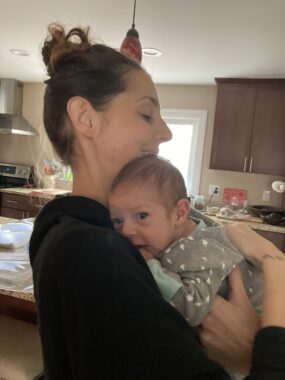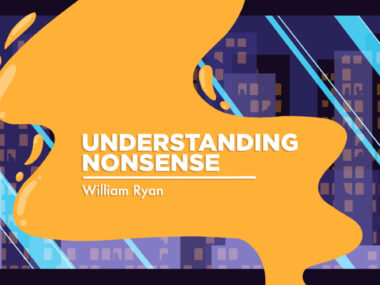If we could just stop saying ‘if you just’ to patients
The phrase is too often a hidden instruction that simplifies our complex health
Written by |

I think the “if you just” culture is hurting sick people.
Have you heard sentences that start with “if you just”? They often end by oversimplifying an issue that’s likely not that simple.
I’m sick of oversimplifying health.
The “if you just” culture is a bit like when someone comments on a cancer patient’s post and says, “Have you tried green juice yet?” The intent is good. The hope to help is present. But when we boil down any ailment to a single, simple, and popular “solution,” we fall flat.
That being said, I love hearing from those who have cystic fibrosis (CF) or another disease. Most of the time, our community holds more secrets worth sharing than science does.
The “if you just” suggestions from those who haven’t lived the situation can be so much more harmful than we realize, despite their good intentions, because it’s putting the majority of blame on the minority of those who live with the possibly irreversible ailment, implying that a patient could “just” control anything about their uncontrollable genetics.
In turn, it can be isolating to realize you have no one to talk to because of all these people throwing their “justs” at you.

New auntie and her new nephew: Bailey Anne Vincent holds her newborn nephew in early December. (Courtesy of Bailey Anne Vincent)
Proper conversation
I feel like the “have you tried” culture is much easier to handle, as it comes with curiosity, interest, and honest questions rather than direct instruction. Fellow patients often speak of “have you tried,” which has led to some of the best advice I’ve received.
I’ve been watching a best friend experience new motherhood recently, which has included hearing some classic “you shouldn’t” comments directed her way. But then a fellow mother asked, “Have you tried olive oil when you’re pumping?” That’s a positive post, and I could put more through the support grapevine without one person telling another what to do.
Using “have you tried” with a new mother allows her the choice of listening further or not. No baby is the same as others, and no body is the same as others, either. So why do we keep approaching conversations as if they are?
Finding a caring community of “have you” instead of “you just” can be important for finding comfort and quality of life prioritized equally with statistics and quantities. But even though most of us need more support in the world of new experiences (be it chronic illness, childbirth, or something similar), that community often feels like it doesn’t exist. But I believe it could. I think it could be baked into our care as much as the use of dietitians or pulmonary therapists.
Wouldn’t it be wonderful if support groups were part of almost every clinic? (Even if, admittedly, the social distancing “6 feet apart” rule would require some adaptions for those of us with cystic fibrosis.)
Wouldn’t it be wonderful if during the times we’re being prepared for a major operation or treatment, we were also paired with a trained, therapeutically minded patient who’s been through the same thing? We all need someone to text about symptoms. These partners could give us the advice that no surgeon could deliver (at least, not in my experience so far).

“Can’t hold this baby on my shoulder anymore”: Columnist Bailey Anne Vincent, foreground, and her “goofball” daughter, Follin Marie. (Courtesy of Bailey Anne Vincent)
Surgeons don’t tell us how to deal with insomnia from steroids or upset stomachs from the antibiotic Bactrim (sulfamethoxazole and trimethoprim). They don’t warn us that our feeding tubes are going to twist like an alien inside us when our stomachs are growling. Despite their words, having a jejunostomy tube (or J-tube) placed in the small intestine is not “just like getting your ears pierced.”
And sure, telling us to get a talk therapist is well and good when insurance allows it. But what about finding community who know our issues, instead of just empathizing? In my opinion, talking to a therapist is a different experience. In an ideal world, I believe, we’d have both.
I’d never by any means discount therapy (or writing about your problems in a weekly column, for that matter). But when your body no longer feels sacred, as happens many times for those of us with living with CF or other chronic illnesses, we need those who understand what it feels like to be trapped in a body that’s always shifting. We’re never settled on a plot of land, the mortgage paid. We have a feeling of impermanence hanging over our heads every single day.
If we just tried building community support into healthcare, maybe we wouldn’t have to try as hard.
Note: Cystic Fibrosis News Today is strictly a news and information website about the disease. It does not provide medical advice, diagnosis, or treatment. This content is not intended to be a substitute for professional medical advice, diagnosis, or treatment. Always seek the advice of your physician or other qualified health provider with any questions you may have regarding a medical condition. Never disregard professional medical advice or delay in seeking it because of something you have read on this website. The opinions expressed in this column are not those of Cystic Fibrosis News Today or its parent company, Bionews, and are intended to spark discussion about issues pertaining to cystic fibrosis.








Leave a comment
Fill in the required fields to post. Your email address will not be published.